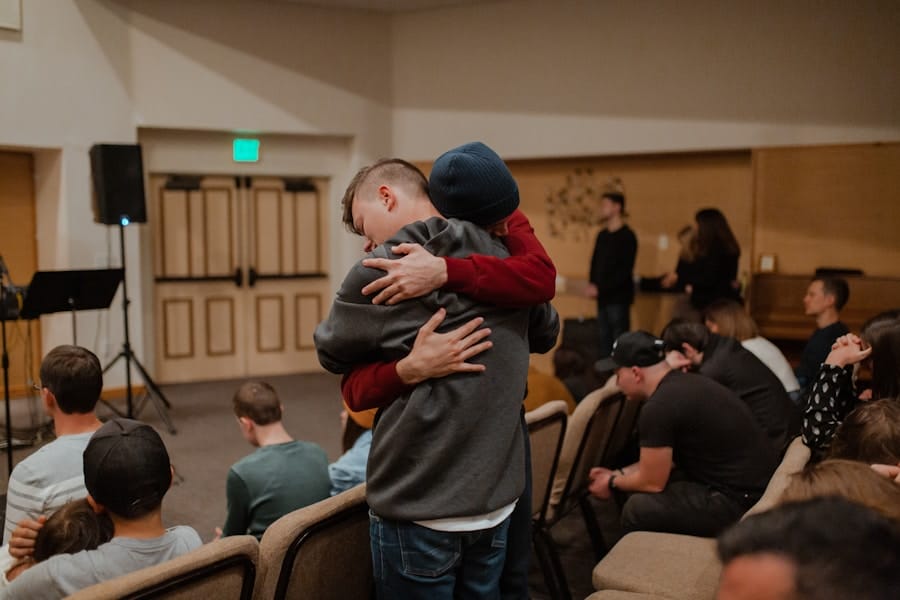The anticipation and excitement leading up to the journey of Hajj is unlike any other experience. For many Muslims, it is a lifelong dream to embark on this spiritual pilgrimage to the holy city of Mecca. The months and weeks leading up to the journey are filled with preparations, both physical and spiritual. There is a sense of eagerness and anticipation as pilgrims make arrangements for their travel, gather the necessary supplies, and seek guidance from religious scholars on the rituals and practices of Hajj. The excitement is palpable as pilgrims mentally and emotionally prepare themselves for the profound spiritual journey that lies ahead.
The anticipation of Hajj is also accompanied by a deep sense of reverence and humility. Pilgrims understand the magnitude of the journey they are about to undertake and approach it with a sense of awe and gratitude. The anticipation is not just about the physical journey, but also about the spiritual transformation that they hope to undergo during their time in Mecca. The anticipation and excitement leading up to Hajj is a testament to the profound significance of this pilgrimage in the lives of Muslims around the world.
Overwhelm and Awe: The First Glimpse of the Kaaba
As pilgrims arrive in Mecca and catch their first glimpse of the Kaaba, they are often overcome with a sense of overwhelm and awe. The sight of the ancient, sacred structure is a powerful reminder of the history and significance of this holy site. Many pilgrims find themselves moved to tears as they stand in the presence of the Kaaba, feeling a deep sense of connection to their faith and to the millions of Muslims who have come before them. The overwhelming emotions that accompany this first glimpse of the Kaaba are a testament to the profound impact that Hajj has on the hearts and minds of those who undertake this journey.
The awe-inspiring sight of the Kaaba also serves as a reminder of the unity of the Muslim ummah, or community. As pilgrims from all corners of the globe gather in Mecca, they are united in their devotion to God and their commitment to fulfilling the rites of Hajj. The overwhelming sense of awe that accompanies the first glimpse of the Kaaba is a powerful reminder of the universality of Islam and the shared bond that unites Muslims from diverse backgrounds and cultures.
Patience and Perseverance: Navigating the Crowds and Rituals
One of the most challenging aspects of Hajj is navigating the crowds and rituals that are an integral part of the pilgrimage. As millions of pilgrims converge on Mecca, the city becomes a bustling hub of activity, with people from all walks of life coming together to fulfill their religious obligations. Navigating the crowds requires patience and perseverance, as pilgrims must remain focused on their spiritual goals while also being mindful of the needs and safety of those around them. The sheer scale of the pilgrimage can be overwhelming, but it also serves as a powerful reminder of the strength and resilience of the human spirit.
The rituals of Hajj also require patience and perseverance, as pilgrims engage in acts of worship that are physically and emotionally demanding. From walking between the hills of Safa and Marwa to standing in prayer on the plains of Arafat, each ritual requires a deep sense of commitment and endurance. Pilgrims must remain steadfast in their devotion, even as they face physical discomfort and exhaustion. Navigating the crowds and rituals of Hajj is a test of patience and perseverance, but it is also an opportunity for pilgrims to demonstrate their dedication to their faith and their willingness to endure hardship for the sake of God.
Spiritual Highs and Lows: Moments of Connection and Reflection
Throughout the journey of Hajj, pilgrims experience spiritual highs and lows as they engage in acts of worship and reflection. There are moments of profound connection with God, as pilgrims stand in prayer at the Kaaba or supplicate on the plains of Arafat. These moments are filled with a sense of peace and tranquility, as pilgrims feel a deep connection to their faith and their Creator. These spiritual highs serve as a source of strength and inspiration, reminding pilgrims of the purpose and significance of their journey.
However, there are also moments of spiritual struggle and doubt, as pilgrims grapple with their own shortcomings and weaknesses. The physical and emotional demands of Hajj can take a toll on even the most devout believers, leading to moments of frustration and uncertainty. It is during these spiritual lows that pilgrims are called to turn inward and seek solace in their faith. They are reminded that Hajj is not just about performing rituals, but about undergoing a spiritual transformation that requires patience, humility, and self-reflection.
Frustration and Exhaustion: Dealing with Physical and Mental Challenges
The physical and mental challenges of Hajj can be overwhelming, leading to feelings of frustration and exhaustion for many pilgrims. The sheer scale of the pilgrimage, combined with the intense heat and physical exertion, can take a toll on even the most resilient individuals. Pilgrims may find themselves struggling to cope with long hours of walking, limited access to amenities, and crowded living conditions. The mental strain of navigating unfamiliar surroundings and communicating in different languages can also contribute to feelings of frustration and exhaustion.
Despite these challenges, pilgrims are called to remain patient and resilient in the face of adversity. They are reminded that Hajj is not meant to be easy, but rather a test of their commitment to their faith. The physical and mental challenges they encounter serve as an opportunity for growth and self-discovery, as they learn to rely on their inner strength and faith in God. By overcoming these obstacles, pilgrims emerge from Hajj with a renewed sense of resilience and gratitude for the blessings in their lives.
Gratitude and Humility: Embracing the Blessings and Lessons of Hajj
As pilgrims complete their journey of Hajj, they are filled with a profound sense of gratitude and humility for the blessings and lessons they have received. They are grateful for the opportunity to fulfill this sacred obligation, knowing that not all Muslims are able to undertake this journey. They are humbled by the experience of standing alongside millions of fellow believers, united in their devotion to God. The lessons they have learned during Hajj – patience, perseverance, humility – serve as a source of inspiration as they return to their everyday lives.
Pilgrims also feel a deep sense of gratitude for the spiritual transformation they have undergone during Hajj. They have experienced moments of connection with God that have left an indelible mark on their hearts and minds. They have gained a deeper understanding of their faith and a renewed commitment to living a life guided by its principles. The gratitude and humility that pilgrims feel as they complete their journey is a testament to the profound impact that Hajj has had on their lives.
Returning Home: Processing the Experience and Nurturing the Hajj Spirit
As pilgrims return home from Hajj, they are faced with the task of processing their experience and nurturing the spirit they have cultivated during their journey. They are filled with a sense of awe at having completed this profound spiritual obligation, but also with a deep longing to hold onto the lessons they have learned during Hajj. They understand that returning home does not mean leaving behind the spirit of Hajj, but rather carrying it with them as they navigate their everyday lives.
Returning home from Hajj also presents an opportunity for pilgrims to share their experiences with others in their communities. They are eager to convey the profound impact that Hajj has had on them, hoping to inspire others to embark on this transformative journey. They understand that nurturing the spirit of Hajj means not only living by its principles in their own lives, but also encouraging others to seek out this profound spiritual experience.
In conclusion, the journey of Hajj is a profound spiritual experience that encompasses a wide range of emotions and challenges. From anticipation and excitement to overwhelm and awe, from patience and perseverance to frustration and exhaustion, from spiritual highs and lows to gratitude and humility – each stage of Hajj offers pilgrims an opportunity for growth, self-discovery, and connection with God. As pilgrims return home from this transformative journey, they carry with them a renewed sense of purpose and commitment to living a life guided by faith. The spirit of Hajj lives on in their hearts, inspiring them to seek out opportunities for spiritual growth and connection in their everyday lives.

